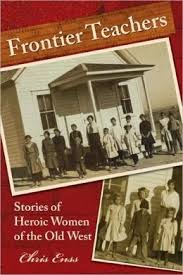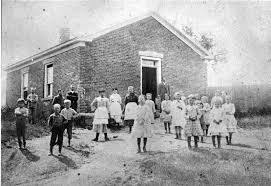Enter now to win a copy of
Frontier Teachers: Stories of Heroic Women of the Old West

Sister Mary Baptist Russell and four other nuns from the Sisters of Mercy Convent weaved their way around a parade of scruffy miners, traveling salesmen, and saloon girls crowded on a sturdy dock that was hugging a shore in San Francisco. Wearing black habits complete with scapulars, veils, and coifs, the women stepped aboard the steamer boat that was splattered with mud and dirt. The deck of the vessel was a swarm with prospectors en route to their diggings down river. Some were sleeping, others were playing cards or discussing their mining claims. The Sister inched their way to a clearing near the bow and grabbed hold of the railing as the small craft moved slowly away from the landing.
The scene around the bay in August 1863 was chaotic. News of the discovery of gold north of the city had prompted people of every kind and description to pour into the place to gather supplies before rushing to the hills. Men, women, and children were living in shacks, or sleeping on the ground under blankets draped over poles. The noise and pandemonium lessened considerably as the boat continued on past abandoned ships, old-riggers, and new vessels anchored and waiting patiently for more eager passengers to come aboard.
The nuns smiled pleasantly at their fellow travelers before turning their attention to the golden brown landscape on either side of the clay-colored water. The furious mining activities in the mountains had left the one time clear and clean river muddy and rolling, and fast receding flood waters had left the channel that use to be deep, shallow and treacherous. Sister Russell spotted a steamer in the near distance that was stuck in the bars and lifted her heard to heaves in a silent prayer that their boat would not suffer the same fate.
If the vessel did not get lodged in the mud or a boiler did not explode, the trip between San Francisco and Sacramento was six hours. The intense heat and savage mosquitoes and fleas the nuns were forced to fight off made the trip seem longer. Sister Russell referred to the riverboat as that “miserable steamer” and had it not been for the fact that the ladies were dedicated to care and educate children in the isolated mining camps,
none would have chosen to ever leave the comforts of their San Francisco based order.
The nuns who dared to make the journey had proven to the leaders of the church to be the most qualified for the job. They were strong, resourceful women who had provided food to hungry pioneers who had lost everything coming west, tended to cholera patients, and taught school to orphans.
Sister Russell had endured a number of hardships on her way from Ireland to California and was the leader of the group of traveling Sisters. Born in County Down, Ireland in 1829, she was only twenty-five years old when she came to America to help develop the rugged west. Like all the Sisters of Mercy she devoted her life to the service of the poor, the sick, and the ignorant. As a member of the Sister of Mercy order in San Francisco she helped establish St. Mary’s Hospital, the oldest Catholic hospital in existence in the Gold Country.

To learn more about the Sisters of Mercy read
Frontier Teachers: Stories of Heroic Women of the Old West

